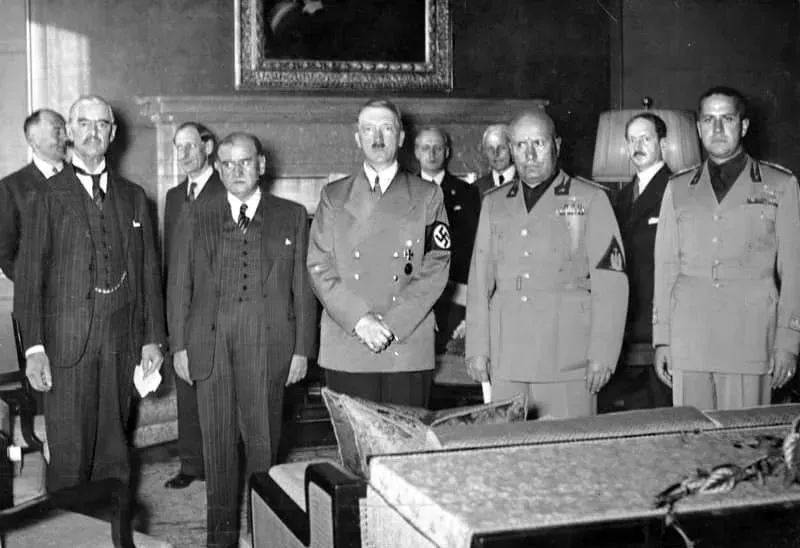On the failure of appeasement
The lessons are here, spelt out in great detail, and we choose to ignore them at our peril—an article about pre-Second World War history and appeasement.

On 12 September 1938, Hitler made a speech at a Nazi Party rally in Nuremberg on the Sudeten crisis in which he denounced Czechoslovakia as a “fraudulent state”.
Then on 17 September, Germany started a low-intensity undeclared war “special operation” on Czechoslovakia. German forces conquered parts of Cheb District and Jeseník District and briefly overran. Dozens of other border counties repelled them. In reaction, the United Kingdom and France on 20 September formally asked Czechoslovakia to cede its territory to Germany.
The Munich Agreement was concluded on 30 September 1938 by Germany, the United Kingdom, France, and Italy. It provided concessions to Germany of the Sudeten territory of Czechoslovakia, where many ethnic Germans lived. Since most of the Czech border defences had been in the territory ceded due to the Munich Agreement, the rest of Czechoslovakia was open to further invasion despite its relatively-large stockpiles of modern armaments.
In March 1939, the First Slovak Republic, a Nazi puppet state, proclaimed its independence. Shortly afterwards, Hitler reneged on his solemn promises and invaded what remained of Czechoslovakia, seizing a significant military arsenal that later played an essential role in Germany’s invasion of Poland and France. As a result, Czechoslovakia had disappeared.
Czechoslovakia's reserves of gold and hard currency seized in March 1939 were “invaluable in staving off Germany's foreign Germany exchange crisis”. In addition, the Germans took all of the Czech factories and raw materials for their vast weapons program, which they used to conquer central and northern Europe.
Today, the Munich Agreement is widely regarded as a failed act of appeasement, and the term has become “a byword for the futility of appeasing expansionist totalitarian state”.
Neville Chamberlain said the following phrase after he returned from Munich on 30 September 1938 in his “Peace for our time” declaration:
“My good friends, this is the second time there has come back from Germany to Downing Street; peace with honour. I believe it is peace for our time. We thank you from the bottom of our hearts. Now I recommend you go home, and sleep quietly in your beds.”
Neville Chamberlain was British Prime Minister from May 1937 to May 1940.
